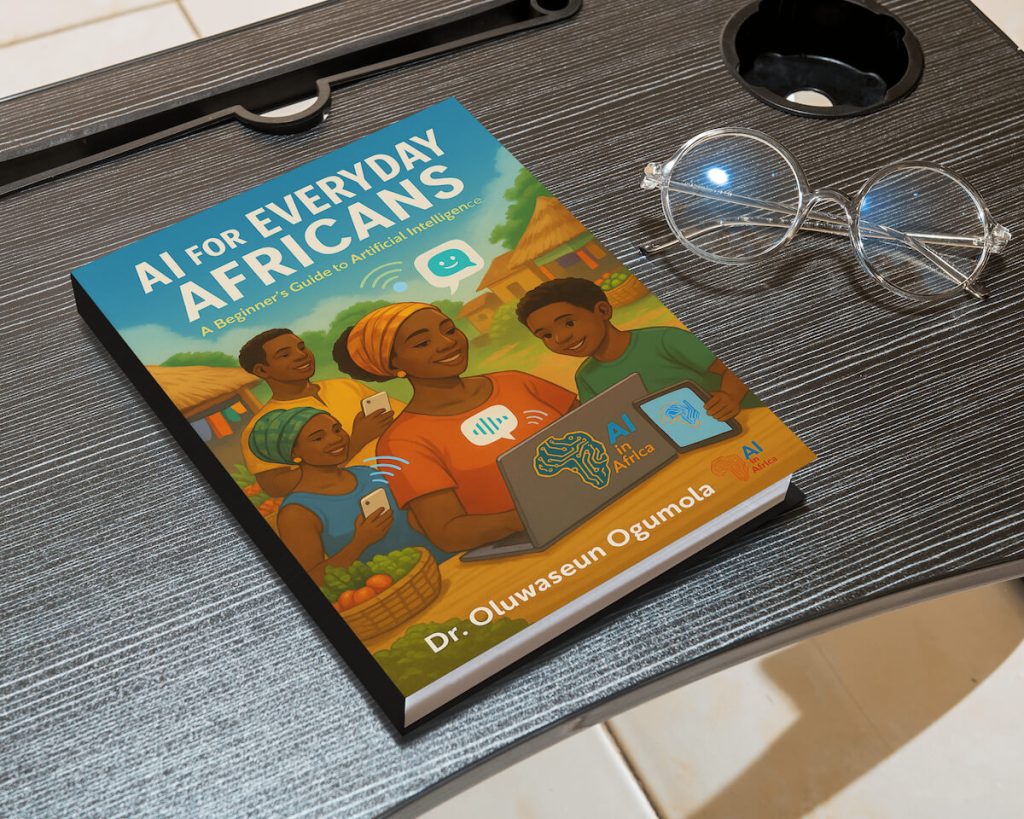Introduction
Artificial Intelligence (AI) is shaping the future of industries, economies, and societies. Yet, for too long, the power and promise of AI have been concentrated in a handful of countries, corporations, and elite institutions. Democratizing AI means shifting that balance making AI accessible, inclusive, and empowering for all people, regardless of their background, geography, or economic status. For Africa, this is not just a technological imperative; it is a developmental one.
With its youthful population, growing innovation ecosystems, and pressing socio-economic challenges, Africa has the potential to leapfrog into the AI age. But this leap requires deliberate efforts to democratize AI knowledge, tools, and opportunities. Organizations like AI in Africa are working to do just that ensuring that AI becomes a force for widespread development, not deepened inequality.
Accessible AI Knowledge
Democratizing AI starts with education. Without widespread understanding of what AI is and how it works, access to its benefits remains out of reach for most Africans. AI literacy needs to move beyond university labs and reach students, teachers, entrepreneurs, and even policymakers.
Across the continent, this is already happening:
- Zindi, a South African data science platform, regularly organizes free machine learning competitions for African youth and beginners, helping them learn by doing.
- Data Science Nigeria (DSN) runs bootcamps and school clubs that have trained over 500,000 young people in AI and data science skills.
- AI in Africa’s own “AI for All Bootcamps” deliver low-cost and free hands-on training across African cities, targeting students and aspiring technologists.
These efforts show that with the right approach, AI education can be decentralized and scaled reaching the very people who can use it to transform their communities.
Accessible AI Tools
Knowledge alone isn’t enough. To truly democratize AI, people also need tools; technologies, platforms, and data that are affordable, open, and relevant to African needs.
Open-source initiatives and nonprofits are helping bridge this gap:
- Hugging Face provides free access to pre-trained AI models, some of which have been fine-tuned for African languages.
- Masakhane, a grassroots NLP research community, has created AI translation models for dozens of African languages through open collaboration.
- The AI & Local Languages Lab by AI in Africa aims to create voice and text AI tools in Swahili, Yoruba, Hausa, and more—empowering non-English speakers to engage with AI in their own tongues.
In addition, access to affordable computing power often through cloud credits from partners like AWS or Google is becoming more widespread for African startups and students.
Accessible AI Opportunities
The third pillar of democratization is opportunity. Once people have knowledge and tools, they must be able to use them to create, work, research, or build.
This means expanding:
- Job pipelines in AI-related industries
- Research fellowships that support African-led innovation
- Startup incubators that help turn AI ideas into viable businesses
Initiatives like the Africa AI Fellowship by AI in Africa give young researchers and developers the mentorship and resources to build impactful projects. Similarly, the AI Startup Incubator nurtures early-stage AI startups with mentorship, compute credits, and introductions to funders.
African-founded startups like Ubenwa (Nigeria), which uses AI to detect birth asphyxia from a newborn’s cry, or Hello Tractor (Kenya), which connects farmers to tractor owners using AI-driven logistics, show what’s possible when opportunity meets innovation.
Case Studies: AI in Action Across Africa
1. AI in Agriculture – Kenya
Twiga Foods, a Kenyan startup, uses AI to optimize supply chains between smallholder farmers and urban vendors. By analyzing demand, weather, and transport patterns, they reduce food waste and increase farmer incomes.
2. AI in Health – Nigeria
54gene, a Nigerian healthtech company, uses AI to analyze African genetic data for better diagnostics and drug development. Their mission is to close the racial data gap in global health research.
3. AI in Language – Pan-African
Masakhane has enabled dozens of African researchers to contribute to machine translation for their local languages. This has improved access to AI tools for millions who speak Amharic, Igbo, or Shona, making language no longer a barrier to innovation.
These examples highlight how democratized AI is already solving real problems across Africa when knowledge, tools, and opportunity are aligned.
Democratizing AI is not a slogan—it is a practical pathway to empowering millions across Africa. When more people understand AI, can access the tools to use it, and are given real opportunities to build with it, development becomes decentralized, innovation becomes local, and prosperity becomes shared.
AI in Africa is committed to this mission. Through bootcamps, fellowships, incubators, and advocacy, we are building a future where every African regardless of gender, language, or location has a stake in the AI revolution.
The continent doesn’t just need to use AI. It needs to own it.
References
- Masakhane NLP. (n.d.). Grassroots NLP for Africa. Retrieved from https://www.masakhane.io
- Zindi Africa. (n.d.). Machine Learning Competitions and Learning Hub. Retrieved from https://zindi.africa
- Data Science Nigeria. (n.d.). AI for Nigerian Youth. Retrieved from https://www.datasciencenigeria.org
- Ubenwa. (n.d.). AI-Powered Newborn Health Diagnostics. Retrieved from https://www.ubenwa.ai
- Hello Tractor. (n.d.). Revolutionizing Access to Farm Machinery in Africa. Retrieved from https://www.hellotractor.com
- Twiga Foods. (n.d.). Reinventing Agricultural Supply Chains. Retrieved from https://twiga.com
- 54gene. (n.d.). Driving Genomic Research in Africa. Retrieved from https://54gene.com
- Hugging Face. (n.d.). Open AI Models and Tools. Retrieved from https://huggingface.co




